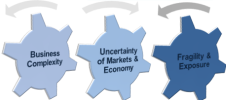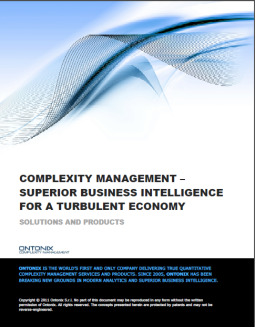
Without the appropriate tools complexity is unseen: it is both problem-solving capability and, unmanaged, has the capacity to destroy a business [system] from within.
When it comes to reducing the “noise” around signals, upon which our shared-future may depend, they don’t get more effective that Nassim Taleb and, the late, Benoit Mandelbrot. This interview from 2008 is well worth re-visiting.
But so many appear totally absorbed into the prevailing culture that they have their eyes on the “prize” of extrinsic rewards, such as sales commissions or other financial rewards that, admittedly, do work well when a task simply requires people to follow a formula. However, according to research cited by Dan Pink, for jobs that require complex or creative thinking, extrinsic rewards can be dangerous, because they tend to restrict people’s ability to notice things on the periphery and craft novel solutions.
The inability to discern SIGNAL from NOISE when we are, increasingly, suffering from information-overload is, perhaps, understandable. But it can be a tell-tale sign that a business is overlooking or ignoring vital signals from its environment [marketplace; ecosystem] or that the ability to interpret is impaired…whatever the excuse the signals are aplenty but it does require an acceptance of the need to look and to LISTEN.
“Never in the history of the world have we faced so much complexity combined with so much incompetence and understanding of its properties” Nassim Taleb.
http://rs.resalliance.org/2008/10/24/turbulence-and-finance-taleb-and-mandelbrot/

 Every time the premium bar rises it benefits them but hurts individuals, households and businesses…in short the whole economy! This is how skewed the “logic” of the prevailing culture in financial services has become. And, believe me, they are comforted by the fact that Politicians, FSA and the general public concern themselves with “effect” rather than dealing with “cause”:
Every time the premium bar rises it benefits them but hurts individuals, households and businesses…in short the whole economy! This is how skewed the “logic” of the prevailing culture in financial services has become. And, believe me, they are comforted by the fact that Politicians, FSA and the general public concern themselves with “effect” rather than dealing with “cause”: 











